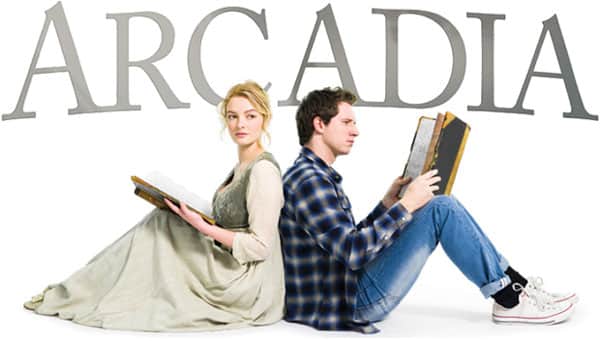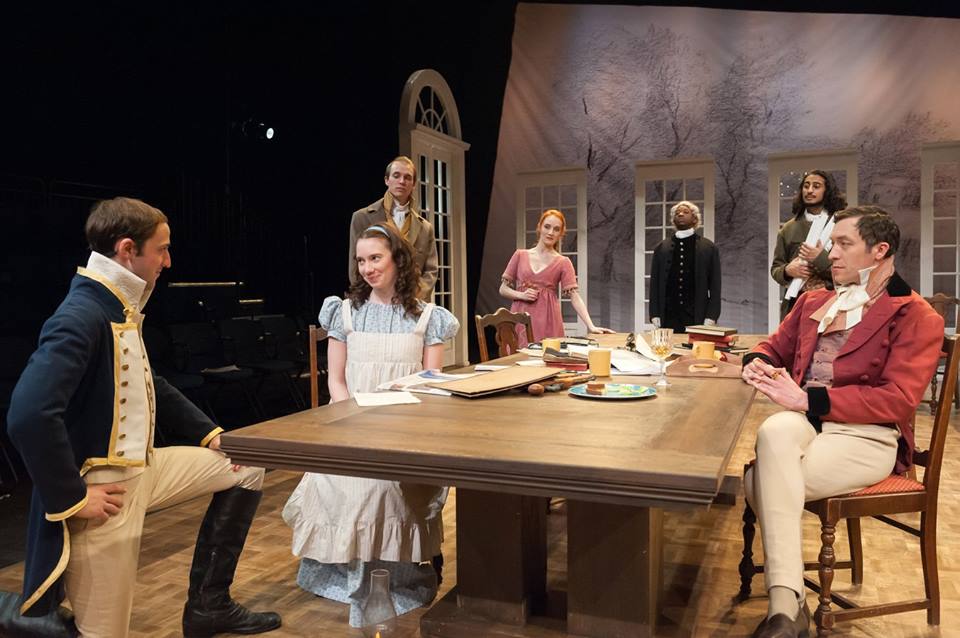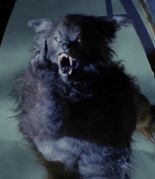|
Welcome goonlings to the Awful Book of the Month! In this thread, we choose one work of Resources: Project Gutenberg - http://www.gutenberg.org - A database of over 17000 books available online. If you can suggest books from here, that'd be the best. SparkNotes - http://www.sparknotes.com/ - A very helpful Cliffnotes-esque site, but much better, in my opinion. If you happen to come in late and need to catch-up, you can get great character/chapter/plot summaries here.  For recommendations on future material, suggestions on how to improve the club, or just a general rant, feel free to PM me. For recommendations on future material, suggestions on how to improve the club, or just a general rant, feel free to PM me.  Past Books of the Month [for BOTM before 2015, refer to archives] 2015: January: Italo Calvino -- Invisible Cities February: Karl Ove Knausgaard -- My Struggle: Book 1. March: Knut Hamsun -- Hunger April: Liu Cixin -- 三体 ( The Three-Body Problem) May: John Steinbeck -- Cannery Row June: Truman Capote -- In Cold Blood (Hiatus) August: Ta-Nehisi Coates -- Between the World and Me September: Wilkie Collins -- The Moonstone October:Seth Dickinson -- The Traitor Baru Cormorant November:Svetlana Alexievich -- Voices from Chernobyl December: Michael Chabon -- Gentlemen of the Road 2016: January: Three Men in a Boat (To say nothing of the Dog!) by Jerome K. Jerome February:The March Up Country (The Anabasis) of Xenophon March: The Name of the Rose by Umberto Eco April: Plain Tales from the Hills by Rudyard Kipling May: Temple of the Golden Pavilion by Yukio Mishima June:The Vegetarian by Han Kang July:Lud-in-the-Mist by Hope Mirrlees August: Pale Fire by Vladimir Nabokov September:Siddhartha by Herman Hesse October:Right Ho, Jeeves by P.G. Wodehouse November:Kitchen Confidential by Anthony Bourdain December: It Can't Happen Here by Sinclair Lewis 2017: January: Mother Night by Kurt Vonnegut February: The Plague by Albert Camus March: The Dispossessed by Ursula K. LeGuin April: The Conference of the Birds (مقامات الطیور) by Farid ud-Din Attar May: I, Claudius by Robert Graves June: Salt: A World History by Mark Kurlansky July: Ficcionies by Jorge Luis Borges August: My Life and Hard Times by James Thurber September: The Peregrine by J.A. Baker October: Blackwater Vol. I: The Flood by Michael McDowell November: Aquarium by David Vann December: Sir Gawaine and the Green Knight [Author Unknown] 2018 January: Njal's Saga [Author Unknown] February: The Sign of the Four by Arthur Conan Doyle March: Lincoln in the Bardo by George Saunders April: Twenty Days of Turin by Giorgio de Maria May: Lectures on Literature by Vladimir Nabokov June: The Electric Kool-Aid Acid Test by Tom Wolfe July: Warlock by Oakley Hall August: All Creatures Great and Small by James Herriott September: The Magus by John Fowles October: I'll Be Gone in the Dark by Michelle McNamara  Current: Arcadia by Tom Stoppard Book available here: https://www.amazon.com/Arcadia-Play-Tom-Stoppard/dp/0571169341 Or here: https://theliterat.files.wordpress.com/2016/01/arcadia.pdf About the book: quote:
quote:Arcadia is a 1993 play by Tom Stoppard concerning the relationship between past and present, order and disorder, certainty and uncertainty. It has been praised by many critics as the finest play from one of the most significant contemporary playwrights in the English language.[1] In 2006, the Royal Institution of Great Britain named it one of the best science-related works ever written.[2] quote:Arcadia is set in Sidley Park, an English country house in Derbyshire, and takes place in both 1809/1812 and the present day (1993 in the original production). The activities of two modern scholars and the house's current residents are juxtaposed with those of the people who lived there in the earlier period. quote:This year is the twentieth anniversary of Tom Stoppard’s amazing play “Arcadia,” which opened at London’s Royal National Theatre. Actually, it seems ironic and maybe even a little trifling to attach dates to a play in which time is so supple and elusive a medium. The scenes in “Arcadia” alternate between the present day and the early nineteenth century. The sizable wall of years separating the two becomes, as the play progresses, increasingly permeable. “Arcadia” concludes with two pairs of dancers onstage, one of them contemporary and one belonging to the era of Byron and Keats. The four waltzers are united by the strains of a single melody. https://www.newyorker.com/books/page-turner/tom-stoppards-arcadia-at-twenty    About the Author quote:Sir Tom Stoppard OM CBE FRSL (born Tomáš Straussler; 3 July 1937) is a Czech-born British playwright and screenwriter.[1] He has written prolifically for TV, radio, film and stage, finding prominence with plays such as Arcadia, The Coast of Utopia, Every Good Boy Deserves Favour, Professional Foul, The Real Thing, and Rosencrantz and Guildenstern Are Dead. He co-wrote the screenplays for Brazil, The Russia House, and Shakespeare in Love, and has received one Academy Award and four Tony Awards.[2] His work covers the themes of human rights, censorship and political freedom, often delving into the deeper philosophical thematics of society. Stoppard has been a key playwright of the National Theatre and is one of the most internationally performed dramatists of his generation.[3] In 2008, The Daily Telegraph ranked him number 11 in their list of the "100 most powerful people in British culture".[4] quote:LONDON (Reuters) - Tom Stoppard was given a special award as “the greatest living playwright” on Sunday at the 60th London Evening Standard Theatre Awards in recognition of more than a half century of work that has won him an Academy Award and four Tony Awards. https://uk.reuters.com/article/uk-britain-theatre/stoppard-called-greatest-living-playwright-at-london-theatre-awards-idUKKCN0JE0VR20141130 quote:It is a mistake to assume that plays are the end products of ideas (which would be limiting): the ideas are the end products of the plays. Themes quote:The Second Law of Thermodynamics, with its entropic vision of a running-down universe aeons and aeons hence, may seem an impossibly remote prospect for a literary sensibility to focus on productively. Pacing Read as thou wilt is the whole of the law. Please post after you read! Please bookmark the thread to encourage discussion. References and Further Reading https://en.wikipedia.org/wiki/Et_in_Arcadia_ego https://en.wikipedia.org/wiki/Lord_Byron Interview of Tom Stoppard by Charlie Rose where he discusses the play: https://www.youtube.com/watch?v=EEmK_Tumgr4 There are a number of crappy recordings of the stage show on youtube but I haven't found a high quality film version yet. Detailed set of in-depth materials about the original production: http://www.act-sf.org/content/dam/act/education_department/words_on_plays/Arcadia%20Words%20on%20Plays%20(2013).pdf Final Note: Thanks, and I hope everyone enjoys the book! (Or, in this case, the play). Hieronymous Alloy fucked around with this message at 05:03 on Nov 6, 2018 |
|
|
|
|

|
| # ? Apr 30, 2024 07:23 |
|
I'll have it from the library tonight, though it'll be waiting until after I finish this new Mosley book.
|
|
|
|
The nice thing about this one is that it's a fairly short play.
|
|
|
|
|
Libby has an audio version of the play with the L.A. Theater Works full-cast performance. It's 3 hours, and free (with a library card), if anyone would like to listen to the performances in addition to reading it.
|
|
|
|
read it today. its fantastic and beautiful. will post more at some point
|
|
|
|
chernobyl kinsman posted:read it today. its fantastic and beautiful. will post more at some point One reason I picked this one is that (by virtue of a school trip back in the day) I was able to see the original Broadway production of it. Just a brilliant show. When she picks up the candle at the end of the play, and all the lights dim down so it looks like just that candle is lighting the whole stage .. . The other contrast that doesn't always come through when reading the play is the marked difference in costuming and dialogue between the historical and modern characters. You go from regency fashion to . . . people just slumming in blue jeans and sweats and sneakers. . .
|
|
|
|
|
Just got it from the library, I'm excited to read it because I know so little about english (language) theatre outside of Shakespeare and mass-produced broadway musicals that I wasn't sure of its existance.
|
|
|
cebrail posted:Just got it from the library, I'm excited to read it because I know so little about english (language) theatre outside of Shakespeare and mass-produced broadway musicals that I wasn't sure of its existance. This is a really good place to start. Stoppard is [now that Edward Albee is dead, anyway] at least arguably the greatest living english-language playwright (imho the argument is between him and Mamet, but I'm probably forgetting some others). Most of Stoppard's reputation rests on Rosencrantz and Guildenstern are Dead, which is an absurdist, existentialist retelling of Hamlet from the viewpoint of two minor characters who die off-screen. It's gobsmackingly brilliant and funny but also fierce and brutal and it does a full on face tackle of the problem of existentialist despair -- sortof a more literary, metafictional version of Waiting for Godot. This is a very very different play and while it doesn't get the attention of RaGaD, Arcadia is my personal favorite of Stoppard's works (at least of those I've read or seen performed). It's this crafted polished little gem and it just shines. Hieronymous Alloy fucked around with this message at 17:32 on Nov 7, 2018 |
|
|
|
quote:
full article contains heavy spoilers https://www.independent.co.uk/arts-entertainment/theatre-dance/features/is-tom-stoppards-arcadia-the-greatest-play-of-our-age-1688852.html A webpage about the mathematics of Arcadia, put together by a math professor: quote:What Thomasina has discovered and what Valentine is trying to explain is what is now commonly called the "Chaos Game." The game proceeds in its simplest formulation as follows. Place three dots at the vertices of a triangle. Color the top vertex red, the lower left green, and the lower right blue. Then take a die and color two faces red, two green, and two blue. http://math.bu.edu/DYSYS/arcadia/sect2.html Hieronymous Alloy fucked around with this message at 22:36 on Nov 10, 2018 |
|
|
|
|
while I preferred R&G when i finally got around to it, arcadia was somehow the first stoppard that i read (and i've never seen it performed somehow). i remember reading it in high school and being blown away but it's a little bit less rosy this time around. i remembered bernard as a run-of-the-mill blowhard rather than the lumbering embodiment of most of the things i detest about the academy, for instance. also stoppard intentionally muddles chaos theory, fractals, and recurrence relationships as being all aspects the same mathematical phenomena and that bugs me just a tad. these are not criticisms of stoppard necessarily as much as they are criticisms of the joyless pedant i grew up to be.
|
|
|
|
Ben Nevis posted:I'll have it from the library tonight, though it'll be waiting until after I finish this new Mosley book. Just finished Arcadia, and I rather enjoyed it. One aspect, not really mentioned in reviews or summaries I've read, dovetailed nicely with the Mosley (John Woman) is the view of history as unknown and unknowable. I'm enjoying reading about this after the fact for the bits I didn't pick up on.
|
|
|
Tree Goat posted:while I preferred R&G when i finally got around to it, arcadia was somehow the first stoppard that i read (and i've never seen it performed somehow). i remember reading it in high school and being blown away but it's a little bit less rosy this time around. Yeah I'm kinda wondering if it isn't basically the ideal high school /college play, the perfect introduction to the compare and contrast essay, especially if you focus on the romantic / enlightenment split. I think it's more interesting as an affirmative response to RaGaD's philosophical negative, though. Hieronymous Alloy fucked around with this message at 19:30 on Nov 14, 2018 |
|
|
|
Ben Nevis posted:Just finished Arcadia, and I rather enjoyed it. One aspect, not really mentioned in reviews or summaries I've read, dovetailed nicely with the Mosley (John Woman) is the view of history as unknown and unknowable. I'm enjoying reading about this after the fact for the bits I didn't pick up on. i don't know about unknowable; Hannah does eventually figure out what happened with Thomasina and Septimus. she's right about pretty much everything, in fact, including that the drawing is by Fuseli, and it being of Lamb and Byron. but problems of interpretation - correct knowledge - are certainly central to the text. the first scene plays with this a lot; the best example is probably the risque banter when it sounds to lady coverly like septimus has slept with thomasina. that bit and others are funny to us because we know what's going on, so we can laugh at the characters' incorrect interpretation, but Stoppard turns that around at the end of act 2: chloe tells hannah that her 'genius brother' is in love with her, and we (or at least I) and hannah both assume that's referring to valentine, the postgrad. the last action in the scene, though, is us being proved wrong, when it's revealed that chloe was referring to gus
|
|
|
|
|
chernobyl kinsman posted:i don't know about unknowable; Hannah does eventually figure out what happened with Thomasina and Septimus. she's right about pretty much everything, in fact, including that the drawing is by Fuseli, and it being of Lamb and Byron. but problems of interpretation - correct knowledge - are certainly central to the text. the first scene plays with this a lot; the best example is probably the risque banter when it sounds to lady coverly like septimus has slept with thomasina. Hannah figures out what happened, but acknowledges that she can't prove it. It's only because we have the earlier view that we know that. Even so, we're at the point were yet another historical note may turn up and change the complexion of the whole thing. It's the compliment to Valentine's grouse, knowing the endpoint doesn't necessarily make it easier to determine the starting point or what happened along the way.
|
|
|
|
I definitely prefer R&G and in my imagination there's a universe where the film version of that came AFTER he got mega mainstream famous for Shakespeare In Love and it was huge. Also never forget to remember that Stoppard was brought in to punch up the dialogue for Revenge of the Sith, a fact that slots neatly into the theory I came up with in the mid 90s while watching Star Wars on mushrooms that R2D2 and C3P0 are the Ros and Guil of Star Wars precision fucked around with this message at 20:44 on Nov 16, 2018 |
|
|
precision posted:
Nooooooooooooooooooooooooooooooooooooooooooooooooooooooooooooooooooooooooooooooooooooooooooooooooooooooooooo
|
|
|
|
|
precision posted:I definitely prefer R&G and in my imagination there's a universe where the film version of that came AFTER he got mega mainstream famous for Shakespeare In Love and it was huge. stoppard is directly to blame for the lion king 1 1/2
|
|
|
|
Tree Goat posted:stoppard is directly to blame for the lion king 1 1/2 yikes
|
|
|
|
He also punched up Indiana Jones and the Last Crusade. “We are pilgrims in an unholy land,” is a line that is WAY too good for the rest of the movie. They play was hard to read, I didn’t make it through. Is there a decent recording of a performance?
|
|
|
|
Yeah, Franchescanando linked a free recording of a performance above, you need a library card though. I had no idea Stoppard did this much revision to Last Crusade: quote:Between an undated "Amblin" revision and a rewrite by Tom Stoppard (under the pen name Barry Watson) dated May 8, 1988,[6] further changes were made. Stoppard polished most of the dialogue,[9][19] and created the "Panama Hat" character to link the prologue's segments featuring the young and adult Indianas. The Venetian family is cut. Kemal is renamed Kazim and now wants to protect the grail rather than find it. Chandler is renamed Donovan. The scene of Brody being captured is added. Vogel now dies in the tank, while Donovan shoots Henry and then drinks from the false grail, and Elsa falls into the chasm. The Grail trials are expanded to include the stone-stepping and leap of faith.[6][20]
|
|
|
|
|
Last Crusade is actually classic Stoppard, once you're looking for it. Somebody could :zizek: the way its themes cut across multiple levels and make some real hay. This really feels like a play that needs to be seen, much like R&G are Dead
|
|
|
|
I saw the play during college over 15 years ago, and reading it now I'm getting a lot more out of it. Probably because I finally understand all the math references. But also yeah, what Tree Goat said about muddling thermodynamics and fractals and whatnot--still confusing. I loved all the threads between future past, like how Bernard says something about the platonic ideal of a letter probably existing (that would prove his theory right) probably getting burnt, and then Septimus burning a letter that you just knew would prove the opposite, but never telling the audience what it actually said.
|
|
|
|
With apologies to the guys who trawl the board looking for genre fiction to insult, this link explains how Stoppard was able to turn a mediocre screenplay into quality entertainment. https://creativescreenwriting.com/indiana-jones-and-the-last-crusade-learning-from-stoppard/ Tying together the father and son, and their reconciliation, with the quest for the physical Grail, which itself represents illumination/enlightenment, was smart. But it’s the snappy dialogue and pacing, which the super smart Lit people dismiss as workman’s craft, that shows Stoppard really gets story. R&G is a good example of his dialogue. Hell, the 90s film Maverick, written by the late W Goldman, has the same level of quality, character-based banter that makes visual media pop so well.
|
|
|
poisonpill posted:But it’s the snappy dialogue and pacing, which the super smart Lit people dismiss as workman’s craft what the hell are you talking about lmao
|
|
|
|
|
Read the link or don’t I don’t care
|
|
|
|
no i don't give a poo poo about indiana jones i want to know what you're on about w/r/t "lit people" disregarding dialogue as "workman's craft". i'm particularly interested in what the hell you think that last bit means and why you think the "lit people" are dismissive of it, when e.g. Mel has continually stressed the importance of craft
|
|
|
|
|
Pretty sure the lit thread regulars post (irregularly) in a thread dedicated to discussing prose and dialogue, both good and bad, regardless of "genre" with some pretty sweet in-depth write-ups.
|
|
|
|
Are Oscar Wilde plays “literary”? Is Double Indemnity, or Raymond Chandler? Is Butch Cassidy and the Sundance Kid, or All the apresidents Men? Why or why not? What parts of their craft are good, and which are just entertaining? Is there a difference? The NY Times Obit of William Goldman said that, if he hadn’t been a screenwriter with an ear for dialogue, he’d have been remembered as an also-ran second tier novelist. Do you agree?
|
|
|
|
Please recall this is the thread for discussion of a specific work of fiction, not the thread for discussing the predilections, real or supposed, of other SA posters, unless Tom Stoppard posts here
|
|
|
|
answer the question OP: chernobyl kinsman posted:no i don't give a poo poo about indiana jones i want to know what you're on about w/r/t "lit people" disregarding dialogue as "workman's craft". i'm particularly interested in what the hell you think that last bit means and why you think the "lit people" are dismissive of it, when e.g. Mel has continually stressed the importance of craft e: ok nevermind come to the lit thread and let's discuss
|
|
|
|
|
I haven't finished listening/reading the play yet because work's been busy, but I was surprised with how witty and funny the first act was. I know the R&GAD is supposed to be funny, but Arcadia's premise sounded very dry at first. Pleasantly surprised that my assumptions were wrong.
|
|
|
|
Franchescanado posted:I haven't finished listening/reading the play yet because work's been busy, but I was surprised with how witty and funny the first act was. I know the R&GAD is supposed to be funny, but Arcadia's premise sounded very dry at first. Pleasantly surprised that my assumptions were wrong. Yeah, there were surprisingly many laughs, I thought.
|
|
|
|
i've got a rear for dialogue
|
|
|
|
Franchescanado posted:I haven't finished listening/reading the play yet because work's been busy, but I was surprised with how witty and funny the first act was. I know the R&GAD is supposed to be funny, but Arcadia's premise sounded very dry at first. Pleasantly surprised that my assumptions were wrong. Yeah it's hilarious right out of the gate. I read this on a flight from Jamaica and kept stopping to laugh and show my wife a bit of dialogue. Septimus talking his way out of the duel in the first scene was great.
|
|
|
|
poisonpill posted:With apologies to the guys who trawl the board looking for genre fiction to insult, this link explains how Stoppard was able to turn a mediocre screenplay into quality entertainment. lol Anyway, this play is atrociously written. 0/10 (USER WAS PUT ON PROBATION FOR THIS POST)
|
|
|
|
see you in another week, botl
|
|
|
|
|
Early on there's a joke about how a character's mother is proud for having read a book that's not about gardening. This is how Tom Stoppard seems to me: someone who just read a pop history book and had to write a play about it.
|
|
|
|
chernobyl kinsman posted:see you in another week, botl Woah, undershot that one a bit. So I found out the other night someone in my office is in a theater group who is putting this on in Chicago (at the Greenhouse Theater Center if anyone is in the area and interested) so I am going to try and see it performed live soon.
|
|
|
|
It took me an embarrassingly long time to find the time to read the 97 pages of this book. It's very funny indeed but I found myself thinking that it would be better to see the actual play several times because the switching between the two converging narratives would be much more interruptive. And the quickness of reading made most of the major themes appear a bit superficial. Even the main emotion vs. academia debate seemed a bit trite to me. I guess that's more a problem with the piece itself than with the format.
|
|
|
|

|
| # ? Apr 30, 2024 07:23 |
|
cebrail posted:Even the main emotion vs. academia debate seemed a bit trite to me. I guess that's more a problem with the piece itself than with the format. I had the same reaction, and I'd much rather watch than read a play that relies so heavily on the mise en scene as a core component of the message. I also agree on the emotion vs. intellectual knowledge debate being cliche, and wonder if the experience of the play would be better than just reading it, maybe making it strike a better chord. Also Indiana Jones jumps from a horse onto a tank and it kicks rear end
|
|
|





















